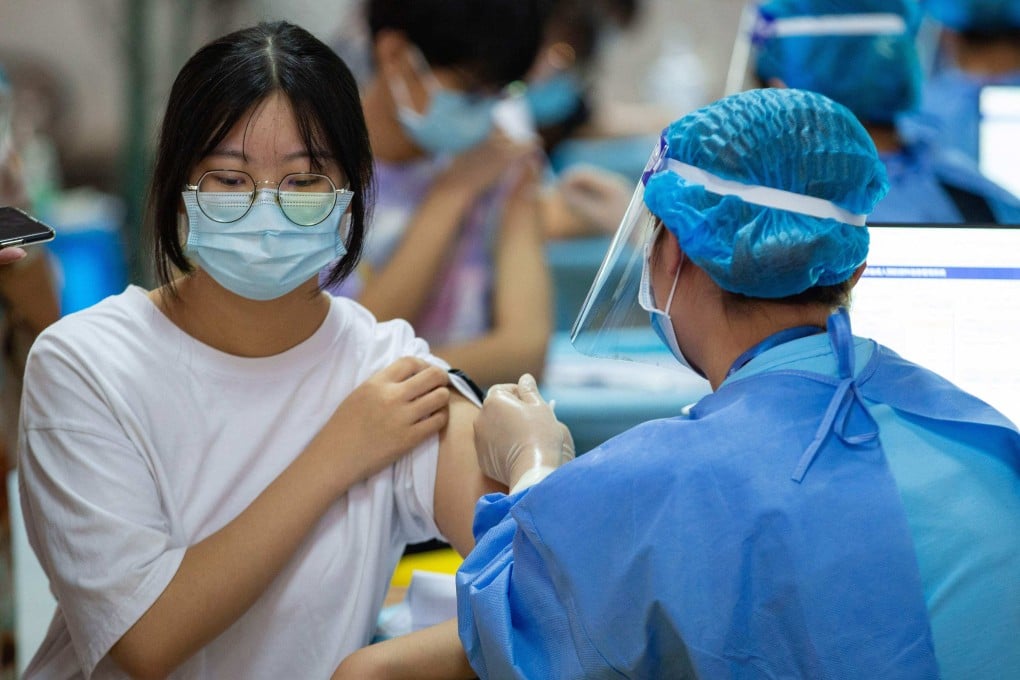Omicron: China’s Sinovac says third shot could help fight variant, as Hong Kong study fails to reveal antibodies with two
- About 94 per cent of people with a third dose had detectable levels of antibodies, Sinovac says, after HKU study finds none in 25 people on two-dose regimen
- The Pfizer-BioNTech vaccine also showed a ‘significant’ immune response drop and boosters may be needed for both, researchers said

Beijing-based Sinovac on Wednesday responded with a statement saying a third shot of its CoronaVac vaccine could improve its ability to neutralise Omicron, citing its own laboratory studies.
The company did not provide details on the levels of virus-fighting antibodies produced or how long after vaccination the measurements were taken, but said some 94 per cent – or 45 out of 48 – people who had taken a third dose had detectable levels.
While it is difficult to compare studies which may use different methods, the company’s findings contrasted with those released on Tuesday in a preprint paper by the HKU researchers.
The university study also examined neutralising antibodies, one arm of immune response that serves as a rough marker for protection against infection.
Of 25 people who received a full two-dose course of CoronaVac, none were found to have detectable levels of neutralising antibodies, according to study author and top infectious disease expert Yuen Kwok-yung and his team.
